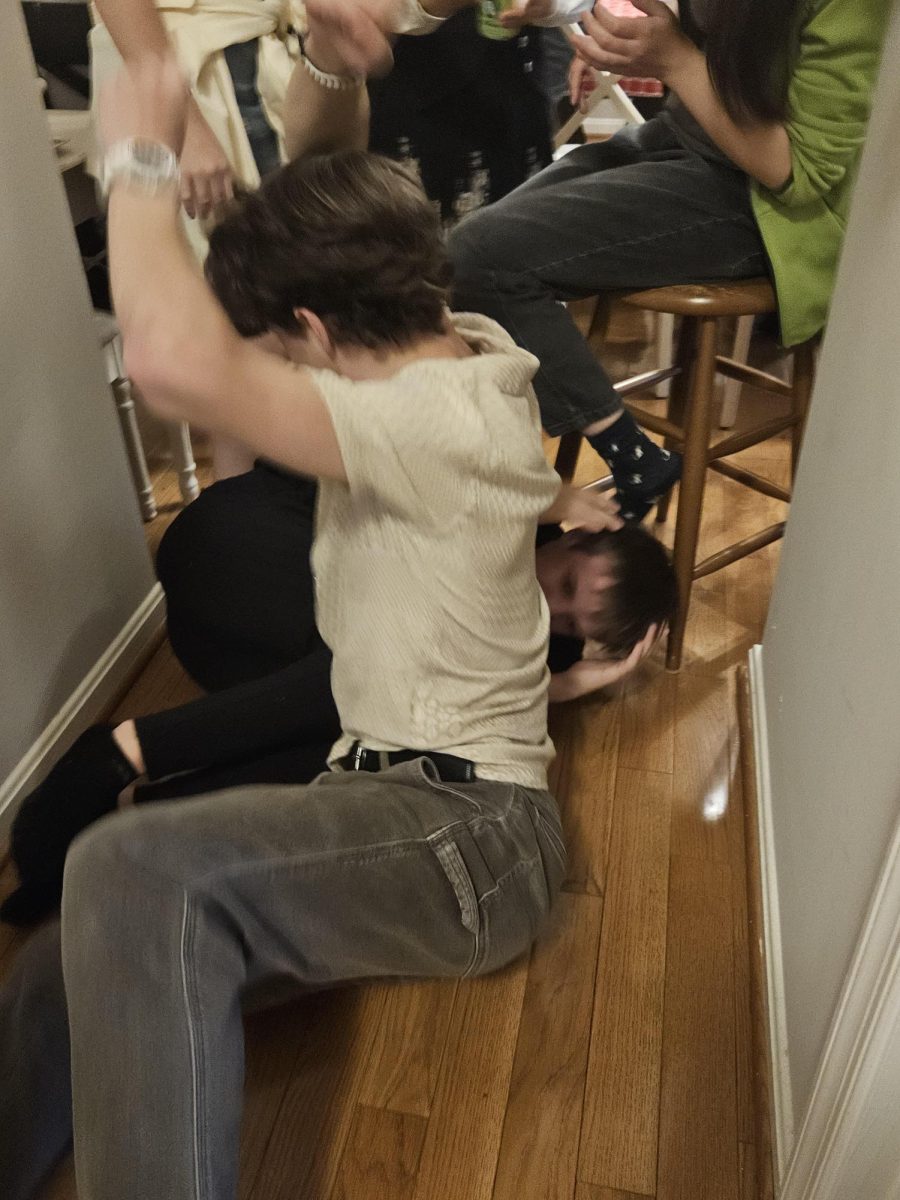Toxic people is a term that many students are familiar with. It refers to people who want to bring others down or thrive on creating negativity. Almost everyone is sure to be able to think of an example in their life of a person who fits this description. But first of all, it is important to keep in mind that when walking through the halls at school or going about one’s day, people pass others who are dealing with their own struggles. Some might have just lost a family member, while others might be adjusting to a new event in their life. Defining someone as toxic after just one interaction does not always give an accurate depiction of that person. There can be more happening in the person’s life than what can initially be assumed.
Toxic people are more likely to be identified through patterns in their behavior over time rather than through individual incidents. But if one does notice these disruptive patterns and recognize someone as toxic, what should they do next?
Senior Vaughn Tralins shared his experience, “The first thing I try to do is distance myself from [toxic people]. If they don’t get the notion that I don’t want to spend time around them, I’ll usually reach a breaking point where I just outright tell them that they’re toxic, and I don’t want to be around them.”
Sometimes, it is not easy to cut someone off. One might feel unsure if doing so is the appropriate action, or one may be in a situation where distancing themself is not so simple. In some situations, a more gradual separation might be best. One approach could be creating a straw man excuse, blaming the need for distance on something unrelated. In these cases, taking a step back and evaluating the situation is a good place to start. In today’s society, people are often quick to judge without taking the time to understand what others are going through.
Counselor Mrs. Massey reminds students, “Toxic things can affect people. I don’t think people are generally toxic; I think it depends on what they’re going through.”
Massey raises a point that toxic is not a term that fits the definition people have given it. People usually associate the term toxic to describe a person that is the root of conflict, but the term carries a negative stigma that should not always be applied. A more accurate term is “high-conflict people.” Toxic people are those whose behavior and attitude cause issues repeatedly, often creating tension in their relationships with others across many areas in their life. The label of toxic is not inclusive of a person’s entire life. There may be specific events, or situations that lead a person to act in a way described as toxic. Due to this, rather than the word toxic, which already has a negative attachment to the word, a more representative description would be “high-conflict people.” Often, when someone is a high-conflict person, their behavior is not just limited to one area of their life. Patterns of negativity tend to show up in multiple parts of their livelihood. It may be at home, at school, or with friends.
Maintaining a balance between empathy for others and protection of one’s own mental health is a challenge that many face, especially in school environments where different personalities are constantly placed in situations to collaborate. High-conflict people are not always easy to identify either, and even when they are, it may not be clear what the best course of action is. Each situation is unique, and there is no generalized answer to be given. It is important to search for a solution that lets one’s self grow as a person while maintaining positive, healthy relationships.










